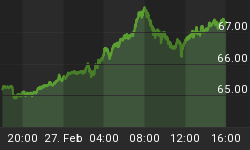In this everything-digital age, the only sure-fire way to protect your privacy is to remove your footprint entirely or make sure you have nothing anyone wants. In other words, make sure you’re not wealthy and famous like Amazon boss Jeff Bezos.
For the tabloids feeding the endless hunger of the masses for trash, Bezos and what they claim are his sent shirtless selfies and sexually suggestive phone text messages they apparently obtained with help from hackers, is a prime target with the world suddenly enthralled with his pending divorce from his wife of 25 years.
Trump is even fully engaged, having wished Bezos good luck, saying “It's (divorce) going to be a beauty.”
But for the rest of humanity not enthralled by celebrity gossip, the bigger issue here is how to keep private messages private.
It’s probably worth asking why Bezos allowed his private messages to be hacked in the first place. He is of the wealthy business class that’s usually the most cautious and employing the best tech services in order to ensure privacy. It’s difficult to imagine the head of Amazon using a weak password or getting his security settings wrong.
Back in November, media reported that hackers had gained access to the private messages of nearly 120 million Facebook accounts and had (at the time) already published such messages from 81,000 accounts, offering to sell access for 10 cents per account.
At the end of the day, the security of texts are only as good as the person sending them.
Late last year, Lancaster University published a research paper on the least-secure passwords that are often in use online. The paper, based on a leaked Yahoo database of personal information, said that the most popular password favored by Yahoo users was “123456.” The second most common was the brilliant “password.” This was followed by “welcome” in third, and “ninja” in the fourth position. Related: Trillions In IPO Funds At Risk Over Government Shutdown
The findings are in line with research released by SplashData last year, which showed the three most popular passwords globally were '123456', 'password', ‘love’ and '12345'. The next two passwords on the list are actual words - “sunshine’ and “princess” while the final place is occupied by word “qwerty.”
Clearly, most of the account breaches happen because of weak passwords, and in this day and age of countless passwords, it’s a real struggle to come up with (and remember) something different for every single account. Doing so inevitably means going through that whole “forgot my password” procedure on a regular basis.
Even experts aren’t clear on which messaging platform is the safest because none is impenetrable.
According to several surveys, messaging applications Signal and Wickr are on the top of the list.
Many also advise that WhatsApp as safe to use but the app has a stigma for being owned by Facebook and it didn’t help that the app’s founder left the company due the privacy concerns.
Related: Eat At Your Own Risk: FDA Not Inspecting Food
Last week, amid the biggest the tech conference that exists, Apple took a swap at Amazon and Google by putting up this message on the side of a hotel: “What happens on your iPhone, stays on your iPhone.”
But they’re not talking about hackers. They’re talking about selling customers’ data, and they’re suggesting that Amazon and Google use your data, overtly and anonymously to try to sell you stuff.
And it’s not just about tests, or hackers … or even selling you stuff.
A recent investigation by Motherboard ended up reportedly paying $300 to a bounty hunter to locate a phone, tracing the sell-out back to the mobile service providers themselves.
Motherboard claims that “T-Mobile, Sprint, and AT&T are selling access to their customers’ location data, and that data is ending up in the hands of bounty hunters and other not authorized to possess it”. No hacking necessary.
Data is the new diamonds, and it’s all vulnerable, whether the end game is celebrity gossip, political capital or making cash of the personal details of the masses.
By Michael Kern for Safehaven.com
More Top Reads From Safehaven.com
















